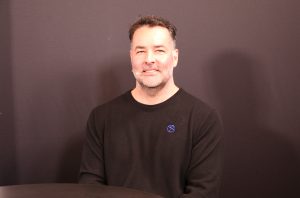Hortonworks-HP deal counters Intel-Cloudera investment says Furrier | #HPBigData2014
![]() Buy into the Big Data hype, or risk being left out of a major cultural shift happening in today’s enterprise, said Wikibon.org analyst Jeff Kelly. Sharing his thoughts with theCUBE hosts John Furrier and Dave Vellante during SiliconANGLE’s day two coverage of Hewlett-Packard, Co.’s HP Vertica conference, Kelly framed today’s Big Data market in terms of the value it provides, the business opportunities it presents, and where the market will see growth and consolidation.
Buy into the Big Data hype, or risk being left out of a major cultural shift happening in today’s enterprise, said Wikibon.org analyst Jeff Kelly. Sharing his thoughts with theCUBE hosts John Furrier and Dave Vellante during SiliconANGLE’s day two coverage of Hewlett-Packard, Co.’s HP Vertica conference, Kelly framed today’s Big Data market in terms of the value it provides, the business opportunities it presents, and where the market will see growth and consolidation.
“Business people need to change their mindset, they have to buy into the value, buy into the hype that Big Data analytics is going to change the way they do business and prove their business,” said Wikibon.org analyst Jeff Kelly, commenting on the culture shift he feels is needed to bring success to the Big Data market. The analyst insisted that “something has to be done to bring [business people and IT] together, so that IT people understand the impact their technology has on the business side.”
It seems there is a schism between business people and IT practitioners in how they interpret the success of their Big Data projects. This week’s event only highlights the glaring difference between how the business side and the IT side of an organization perceive the results of their respective Big Data projects. Vellante underscores this schism with numbers based on a recent Wikibon survey, noting less than 20 percent of business people say their Big Data project are paying to full value, while over 50 percent of IT practitioners feel their projects have fully paid off.
Vellante explained that most “IT guys measure success by ‘oh, the technology works,’” while the business side requires more proof. Kelly stated one of the most common causes for the gap between business departments and IT is the fact that “the way you measure success is different.” The business side wants value from the data – cutting cost, finding new revenue streams, etc.
Too soon to determine Big Data’s value?
Pointing out one reason for the misaligned perspectives of Big Data solutions from business people and IT people, Furrier reminded the panel that Hadoop is free, requires a great deal of tailored resources, and has been applied to a variety of use cases. Emphasizing Hadoop’s early stage status, Furrier added that “people are trying to figure out where to go with Hadoop.”
This range of use cases for Hadoop only adds to the broadness of the business opportunities underlying the Big Data framework, lending to a reluctance to pay for something without knowing where the value is going to be. “I think there is going to be a market for the Hadoop vendors. It remains to be seen what people are going to pay for what is going to be a commodity layer,” Kelly said.
Commenting on the business opportunities for Hadoop vendors, Furrier sees initial public offerings (IPOs) as a diminishing factor for a vendor’s ability to create value, leaving it to practitioners to take the win. Speaking specifically about Cloudera Inc.’s upcoming IPO, Vellante recommended that, in case Cloudera risks its IPO window (as they don’t seem to be ready to go public earlier than 2016), selling shares would be an option. “Why not give up 20 percent of the company, create an exit for the early investors, and that way keep the options open?”
Kelly pointed out that in terms of IPO windows, “it’s not going to be a big window. It’s not a huge opportunity” for the practitioners, and investors will realize that the Hadoop distribution revenue does not represent a huge market.
- Safe bets for Hadoop will curb a Big Data Bubble
“Investors think that Cloudera will be the next value play. So the question is, is Cloudera’s valuation justified, or will somebody come out the Big Data world with such a valuation that is justified?” Vellante asked.
Furrier, Vellante, and Kelly talked about the prospects of who will go public. Furrier quickly noted that MapR has a very successful and sustainable business model of the three and more likely be an attractive candidate to go public (IPO). Vellante commented that Cloudera and Hortonworks have very high valuations (in the billions) which make them less of a viable acquisition target. When pressed on M&A Kelly speculated that of the three major Hadoop players MapR Technologies, Inc. might be the first amongst the three major Hadoop distros to be acquired given their success and sustainable business model.
Furrier noted that even with prior tech bubbles as the market saw with AOL Inc.’s Netscape, “the value shifted to practitioners who put the web up — the people using the technology.” Google, Inc. and other such companies did make money, yet as Vellante and Kelly explained, Google, Facebook, Inc. and Amazon.com, Inc. were practitioners first, while Cloudera is not.
“You have to find the companies that are going to transform, the industries that are going to transform, and make bets on them,” Vellante said, fingering retail as one such industry.
Prompting cultural change
Dave Vellante, Jeff Kelly and John Furrier at theCUBE, HP Vertica 2014. photo by SiliconANGLE
Commenting on the Born in Big Data concept, Furrier explained it “means that you were born with no baggage. No legacy to cloud your mind up. That is a cultural shift. You either see it, or you don’t.” He also added that to a hammer, everything looks like a nail. In the same way, “if you’re old school IT and you think you’re successful with a Big Data project” you are measuring it based on prior measurement patterns that don’t really fit with the reality.
Vellante said the market is bifurcated, part of it representing those born in Big Data where “you’ve got much more alignment. IT and business guys are much more aligned with goals.” The rest of the market is at the opposite end, with the aforementioned schism. He predicted there will be “more spending growth in the new, emerging Big Data space than in the traditional data warehousing.”
For the Born in Data side of the market, “there is no such thing as an IT project, it’s a business project with a revenue target,” according to Vellante. As business and IT align, data-first will be a “a discipline everyone will adopt,” just like cloud-first, or mobile-first.
Where are the successful business stories?
Kelly explained that “naturally people are impatient to see the success stories” in Big Data. Currently the tooling is still being developed, but “the impact that Big Data and its interactions with cloud and mobile will be huge.” In the end practitioners will win, not vendors.
However, vendors can still make money, according to Vellante. There are great opportunities around integration, but whether the big whales or startups will ultimately dominate this space remains to be seen.
As investments continue to mound behind the major Hadoop distros, including Intel Corp.’s $740 million investment in Cloudera, HP’s $50 million investment in Hortonworks, Inc. and the $110 million raised in MapR’s latest funding round led by Google, the perceived market value rises in step. The companies fronting the money are equally telling of the certain market consolidation to follow.
Kelly predicted the first of these three major Hadoop distros to be acquired will be MapR. Another possibility would be Intel making a full acquisition of Cloudera. The most likely to go public and remain independent is Hortonworks, especially on a global level.
“What’s different about Hortonworks now, their business model is still in play. The HP-Hortonworks deal is a strategic one. The global marketplace is a very interesting dynamic. The global market is a huge issue. If you factor in China and other countries, they have an opportunity to be huge,” Furrier said. Vellante agreed that global markets present a great opportunity, calling out Tableau Software Inc.’s Big Data visualization platform as a success story on the global scene.
photo credit: HikingArtist.com via photopin cc
A message from John Furrier, co-founder of SiliconANGLE:
Your vote of support is important to us and it helps us keep the content FREE.
One click below supports our mission to provide free, deep, and relevant content.
Join our community on YouTube
Join the community that includes more than 15,000 #CubeAlumni experts, including Amazon.com CEO Andy Jassy, Dell Technologies founder and CEO Michael Dell, Intel CEO Pat Gelsinger, and many more luminaries and experts.
THANK YOU









